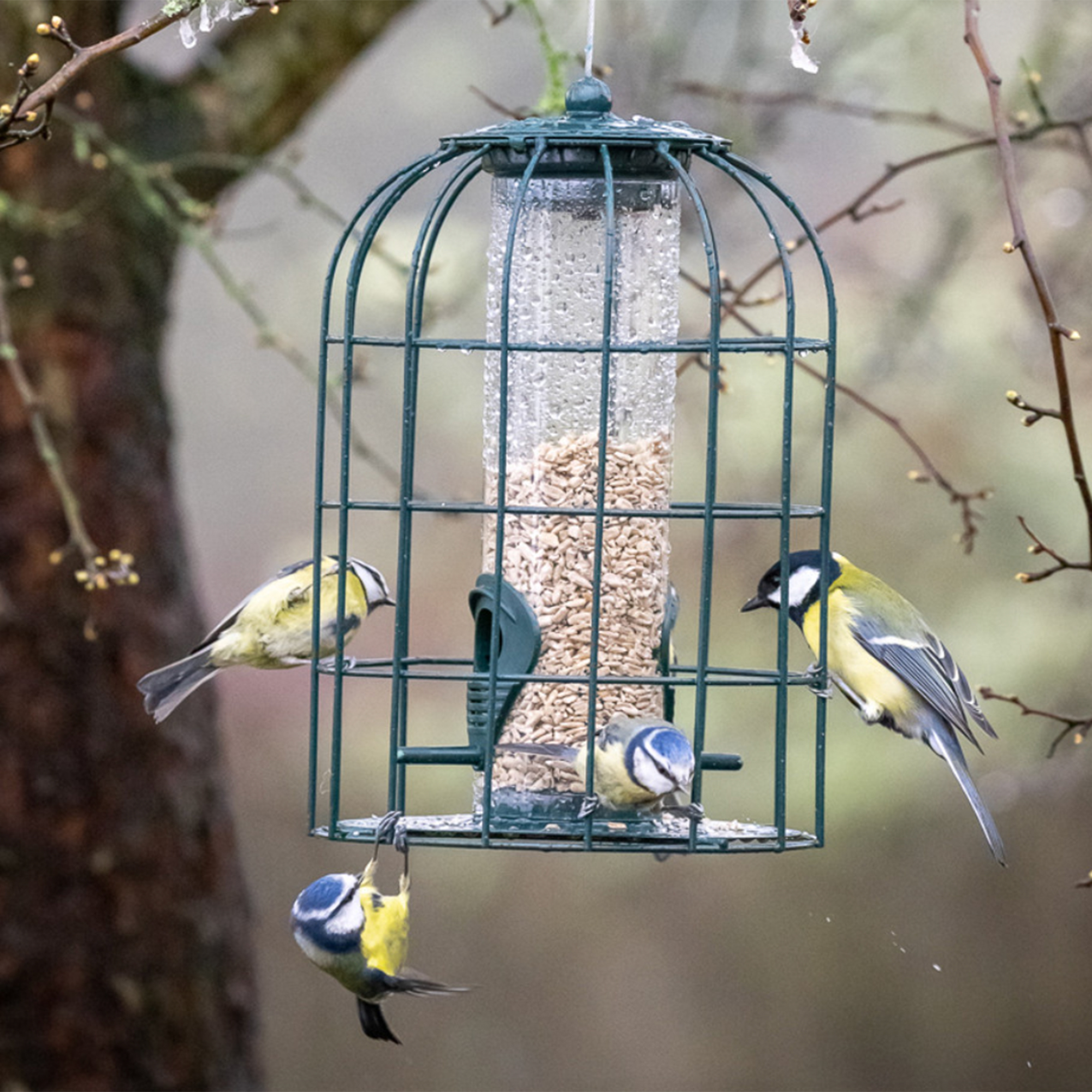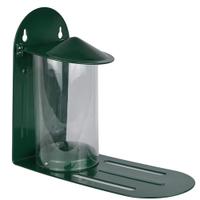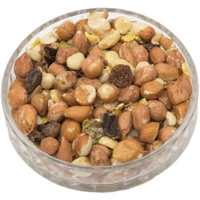Experts reveal the foods you shouldn't leave out for garden wildlife – and what's safe to feed them instead
Looking to extend mealtimes to furry outdoor friends this season? Here's all the safe foods you can put in your garden and the ones you should be avoiding
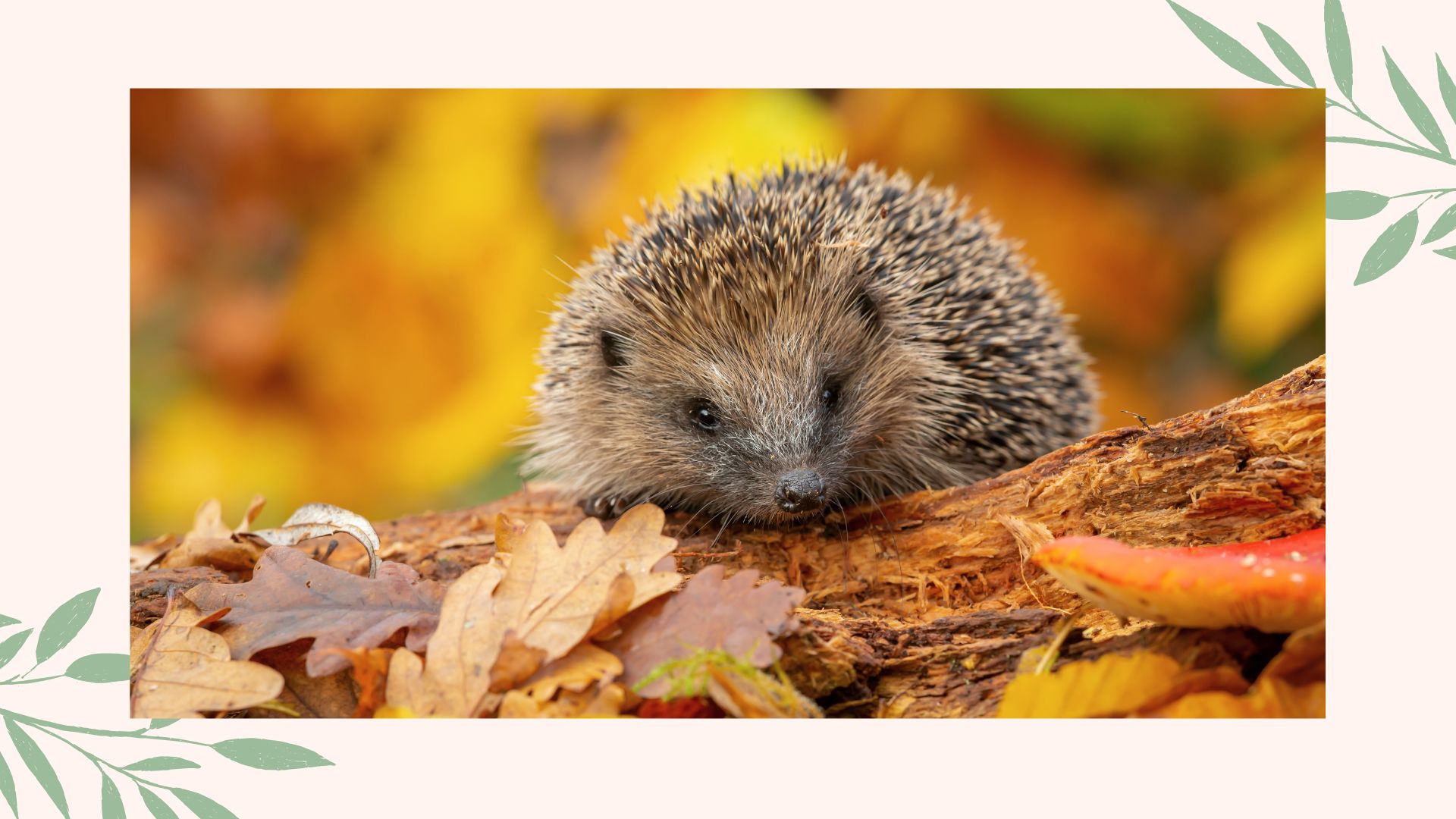

Once the colder weather arrives much of our British wildlife's food sources can start becoming scarce and natural foraging becomes harder. So it can be a helpful idea to leave out food occasionally, as long as it's safe for them.
If you already do everything you can to attract birds into your garden then you'll no doubt be keen to look after other furry visitors who may be hungry. And while you may fancy yourself a rewilding gardening advocate, caring for wildlife can be a little trickier than you might think.
Depending on what type of wildlife is visiting your garden there are strict yes and no's when it comes to the types of foods you can leave out. To ensure you keep animals healthy and returning, we spoke to wildlife experts to find the safest tasty offerings.
Foods you can and cannot leave out for wildlife in autumn
Whether you're looking to attract birds into your garden to help with your slug problem or have a friendly fox visitor you'd like to keep happy, there are various foods you can leave out.
It's also important to know the foods you shouldn't offer them, as many foods you'd expect to be safe can be surprisingly damaging to wildlife.
1. Birds
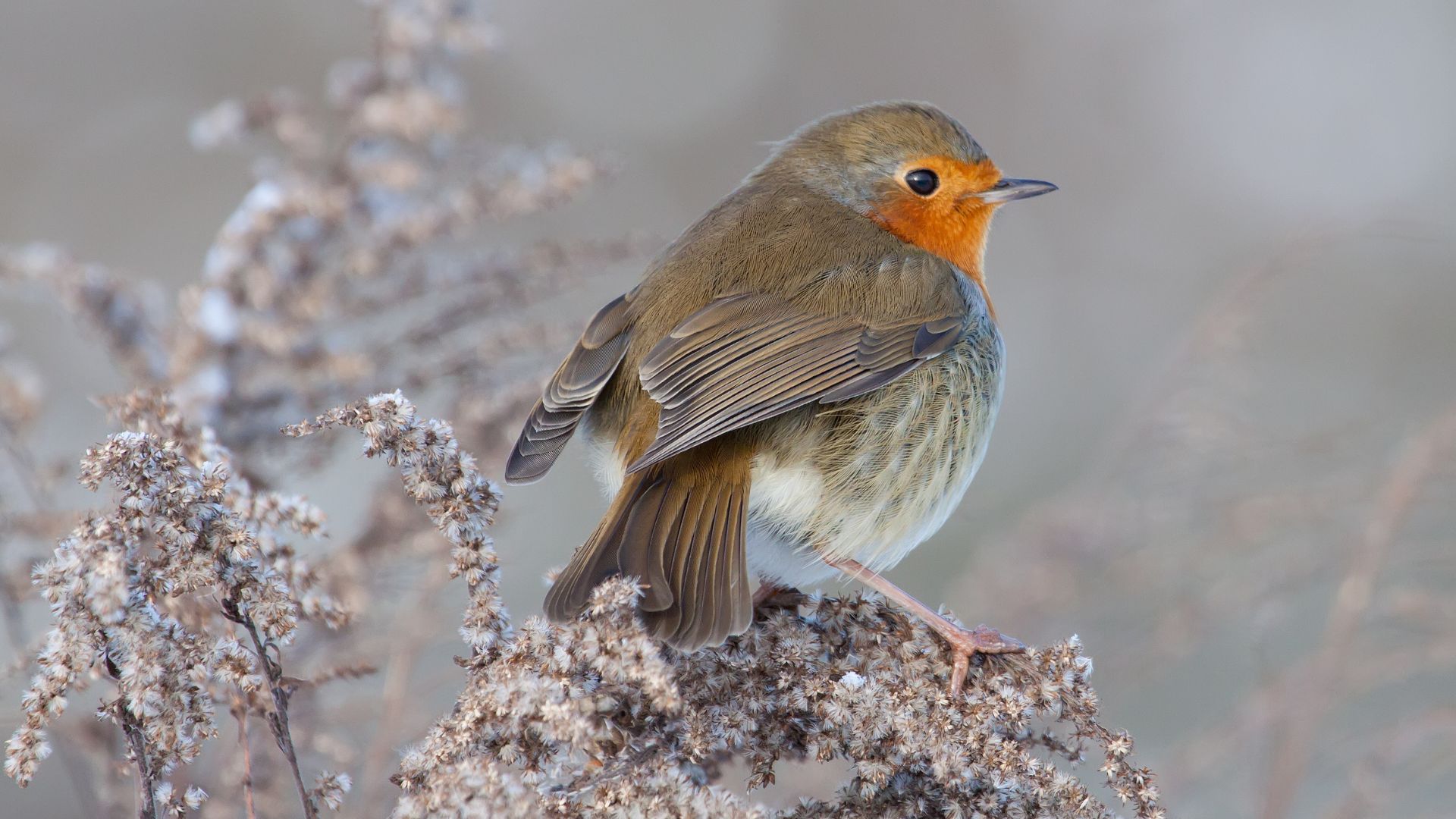
As one of the most common animals that will visit your garden, feeding birds is easy and you'll be able to find the best bird food in the supermarket or pet shop. If however you're trying to stop pigeons coming into your garden you may want to rethink putting anything out.
Sean McMenemy, wildlife expert and founder of Ark Wildlife reveals what you should and shouldn't feed garden birds – which many of you might have seen Monty Don recommending for feeding birds in winter.
Sign up to our free daily email for the latest royal and entertainment news, interesting opinion, expert advice on styling and beauty trends, and no-nonsense guides to the health and wellness questions you want answered.
- Avoid: Sean warns against salt-roasted peanuts or leftovers from cooked meals and stresses the importance of checking all bird feed in case it's mouldy or past its best-by date.
- Safe to feed: "Fat balls are a favourite winter treat for birds, packed with suet, cereals, seeds and proteins like insects. These high-fat snacks help birds stay warm, fly and even sing during the colder months."
Alongside fat balls, Sean says suet and peanuts are another great option as they provide a healthy dose of protein and fat.
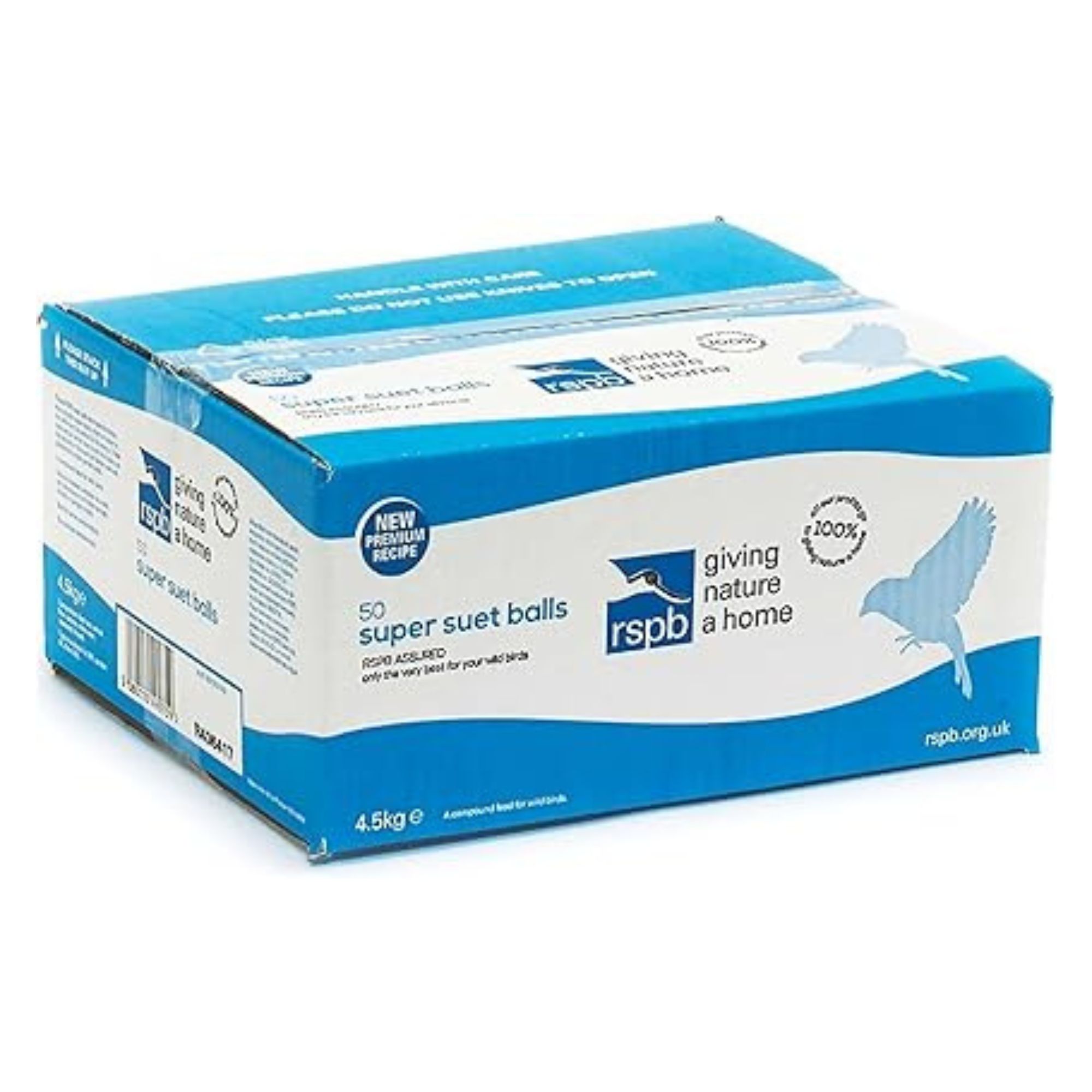
RRP: £15 | This pack of 50 fat balls provides brilliant energy-rich treats for all birds with a nutritious blend of suet, wheat flour, peanut flour, millet seed, rapeseed and linseed.
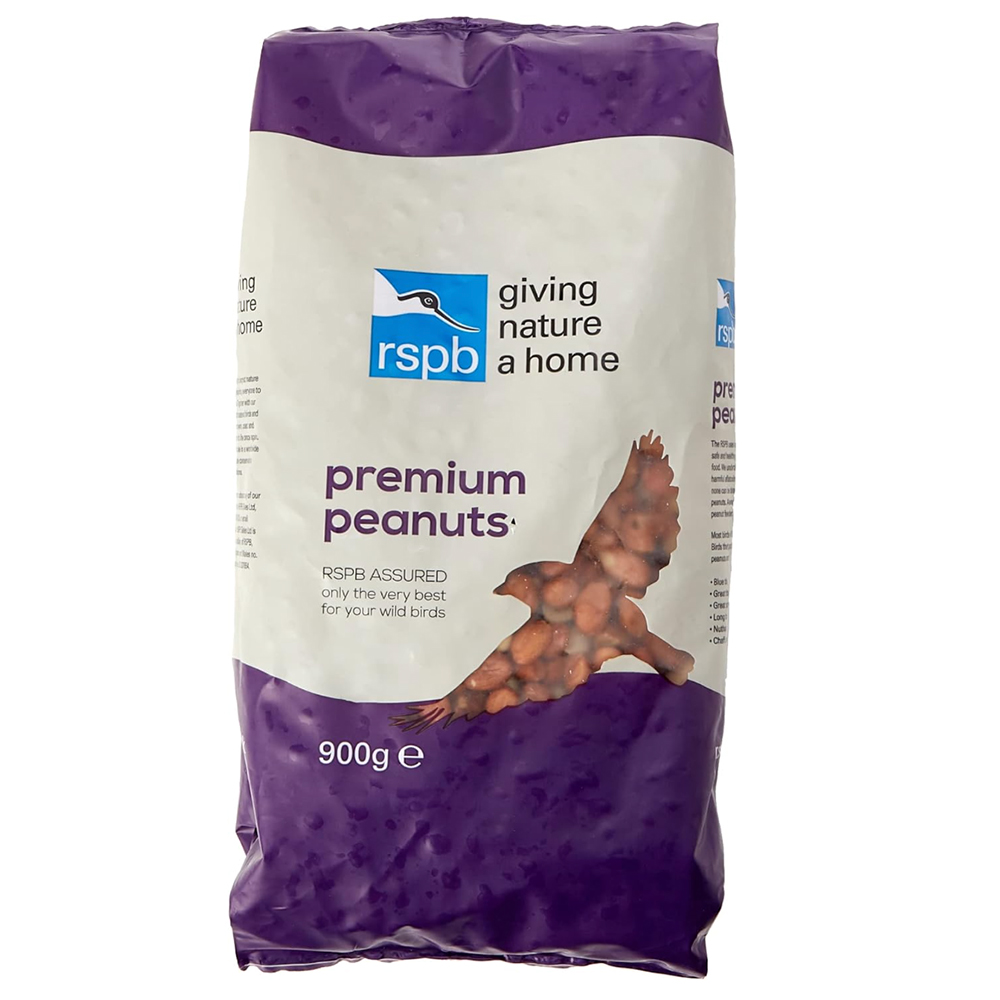
RRP: £5.50 | The best way to feed birds peanuts is to use a trusted source that doesn't contain any salt - such as these best-selling RSPB premium peanuts.

Sean's decades of industry insight and knowledge make him a valuable voice and expert in all aspects of garden wildlife, birds, and plants. He believes that supporting garden wildlife starts from the soil and rises up to the sky.
2. Hedgehogs
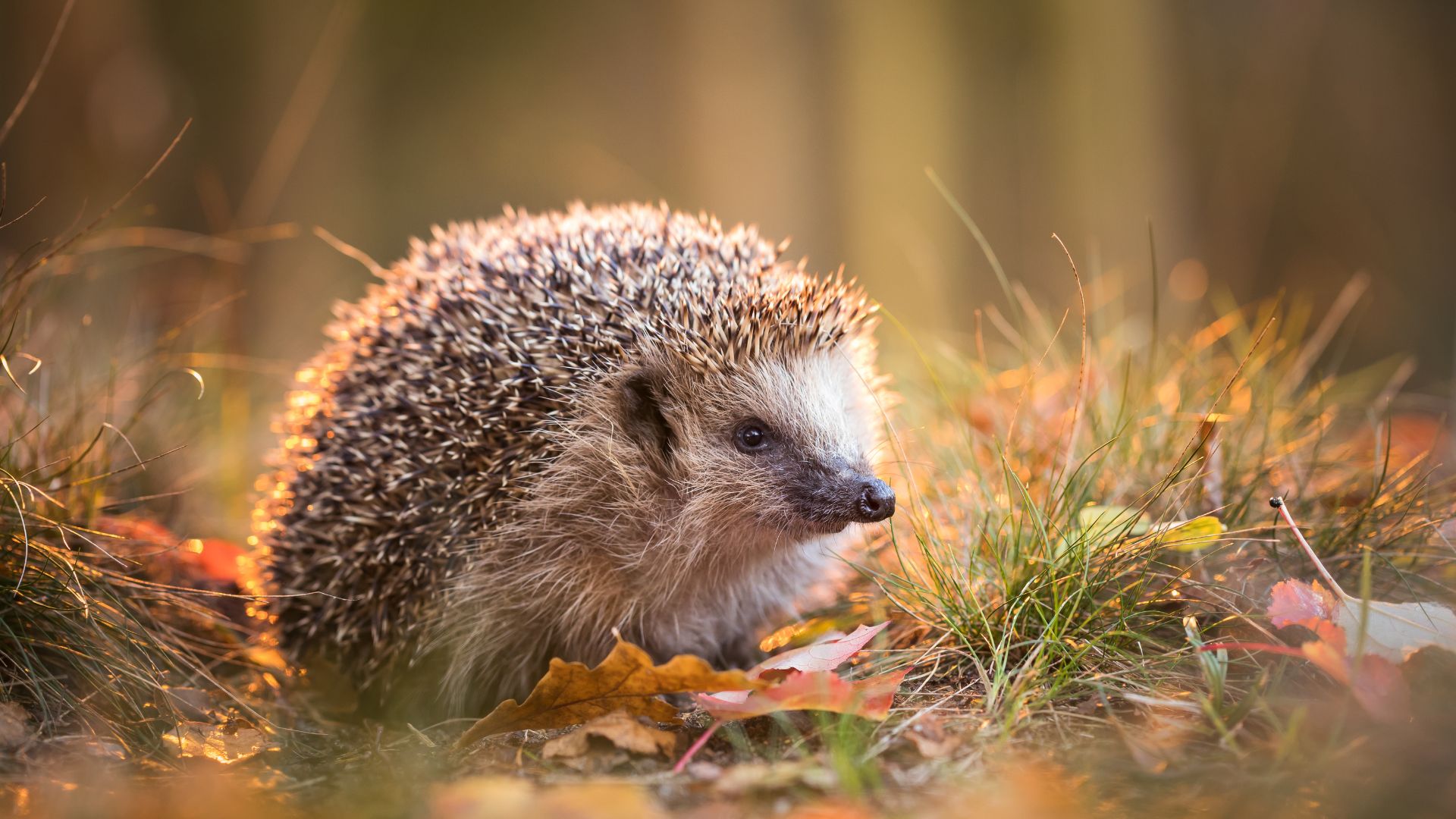
If you've been embracing the overgrown garden trend this year you might've seen a few prickly little guests outside. Hedgehogs love dry sheltered areas so as soon as the leaves begin to fall you might run into them more.
- Avoid: "Foods to avoid for these prickly pals include bread, milk, raw meat and eggs, as well as whole nuts and seeds," warns Andrew Ward, an expert from eco-survey company Arbtech. "Whole nuts are choking hazards for hedgehogs, especially as they don’t tend to chew food thoroughly."
- Safe to feed: "Specialist hedgehog food formulated with the right nutrients will be available from pet stores or wildlife suppliers, but if you can’t get hold of any, wet cat or dog food is a good alternative. Meat-based, grain-free varieties (chicken, turkey, or beef) are excellent choices, providing hedgehogs with protein and fat, but try to opt for those in jelly rather than gravy," says Andrew.
You can also put out a few mealworms or unseasoned meat, similarly to birds it's best to avoid any salty food when catering to hedgehogs.
Top tip: "Remember that hedgehogs are nocturnal, so put food out at dusk and remove leftovers in the morning to avoid attracting pests," Andrew adds.
3. Squirrels
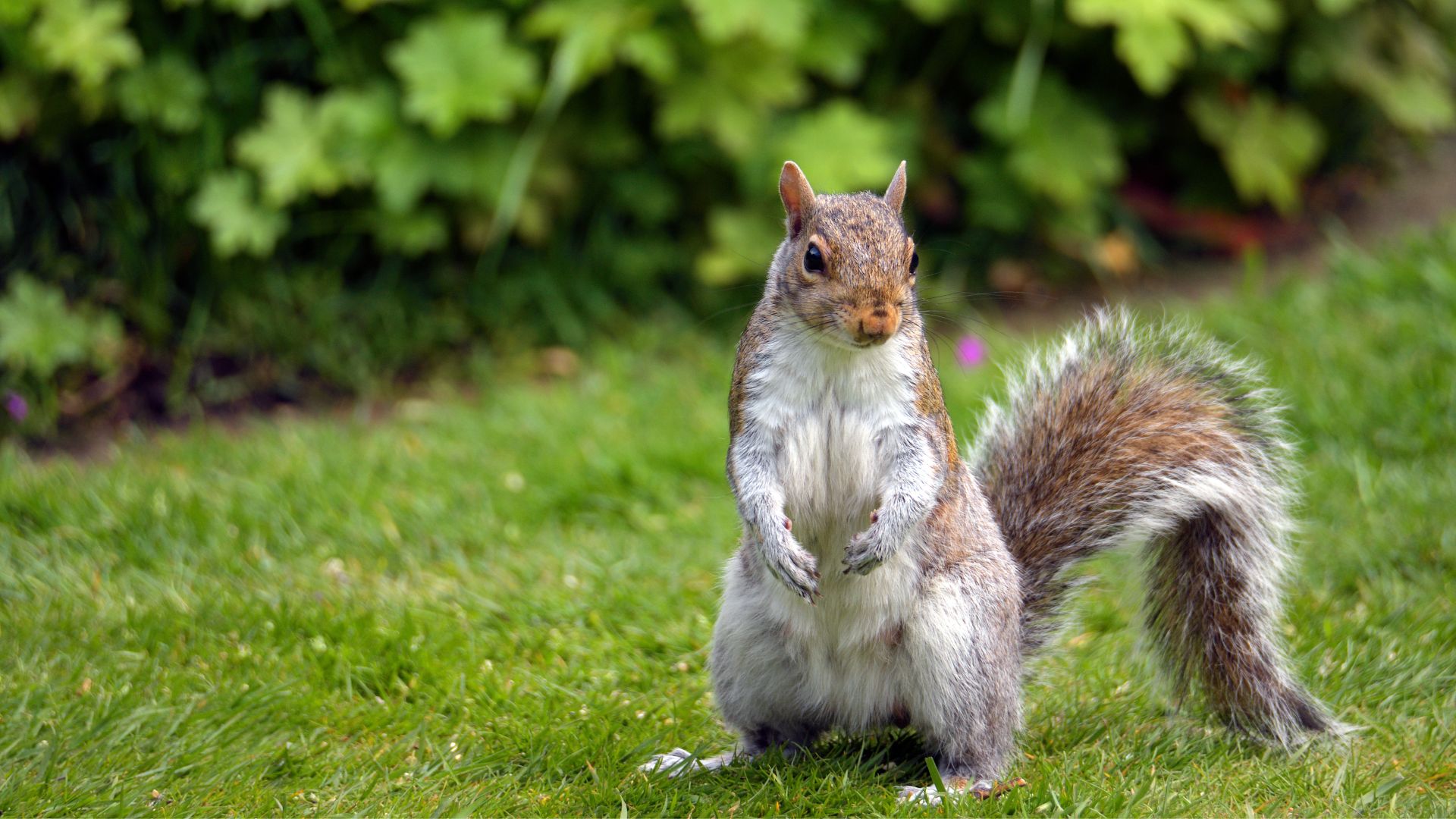
Although many homeowners will be trying to stop squirrels from coming into their gardens, the fuzzy-tailed creatures are just as important as any other wildlife.
- Safe to feed: "Nut mixes are an excellent winter treat for squirrels, providing essential vitamins and minerals to keep them healthy throughout the colder months," explains Sean. "You can also offer them fruit and vegetables such as apples and carrots. If you have a squirrel feeder, it’s best to use specially formulated squirrel food as it is nutritionally balanced just for them."
If you do struggle with greedy squirrels stealing your bird food then Sean has a great trick. He says, "Having a feeder also helps keep squirrels in their little corner of the garden, so they won't steal from the bird feeders, letting both animals enjoy the space together."
Supa Metal Squirrel Feeder, £17.33 at Amazon
This simple but effective feeder provides a platform for squirrels to feed from safely.
4. Badgers
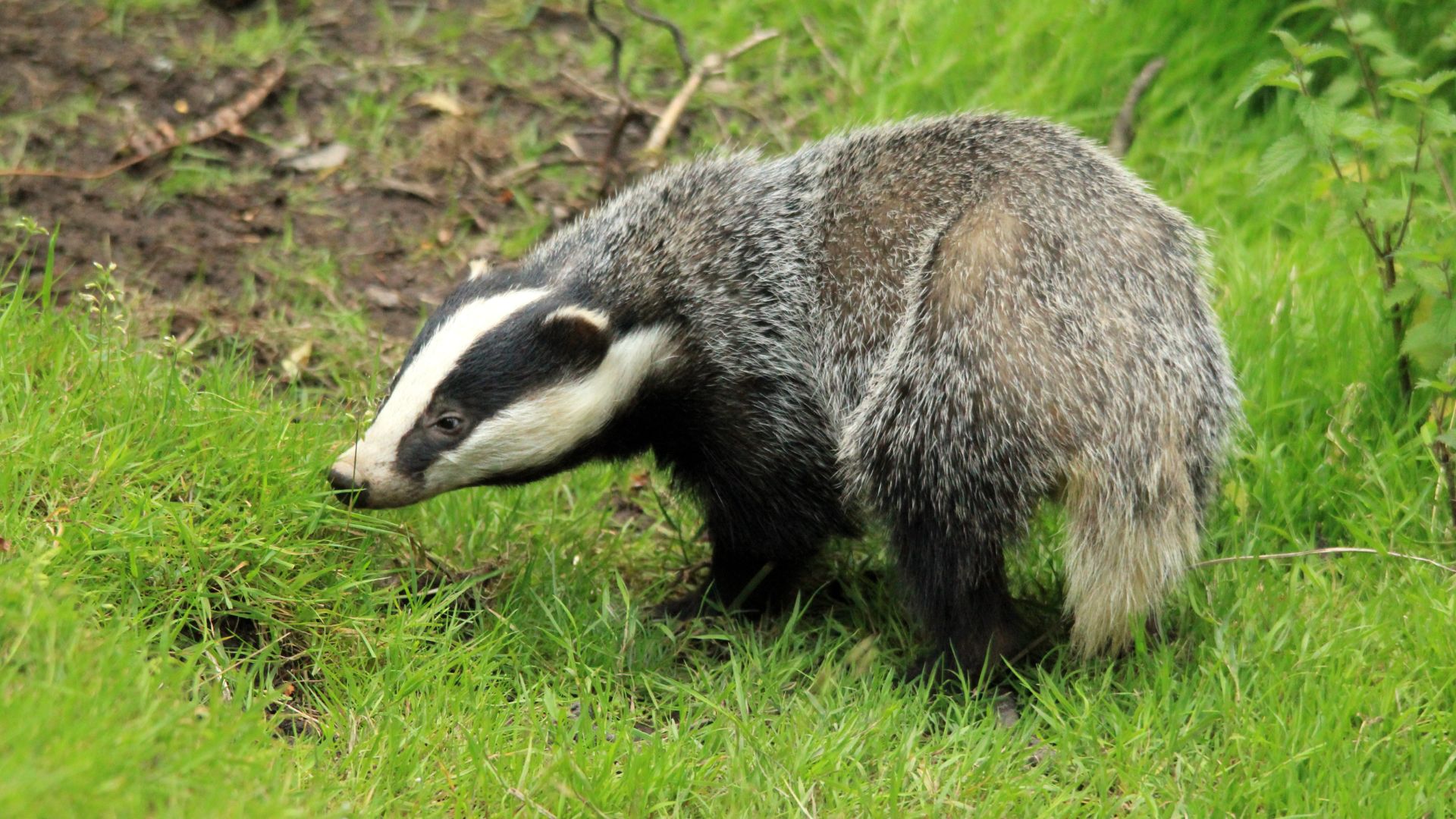
Perhaps a less common garden guest but in more rural areas and near woodland badgers can often find their way into your outdoor spaces. Whether they are simply passing through or have found a spot to lay low, providing a little food will be much appreciated.
- Safe to feed: Sean says, "You can help support local badgers by offering them supplementary food treats like peanuts or Ark badger food. Their natural diet is typically 80% earthworms, so when the ground is frozen, they can go hungry." Aside from badger food, he suggests fallen fruits like apples, plums and pears as well as garden crops like wheat and sweetcorn. Sean adds, "Nuts, seeds, acorns, and berries like elderberries and blackberries are also well-suited for these resourceful nighttime foragers."
If you've been lucky enough to spot some stripey badgers in your garden then you can keep them happy and fed with this specialised badger food. IT's packed with high-quality nutrient-rich nuts and is sold in varied quantities.
5. Foxes
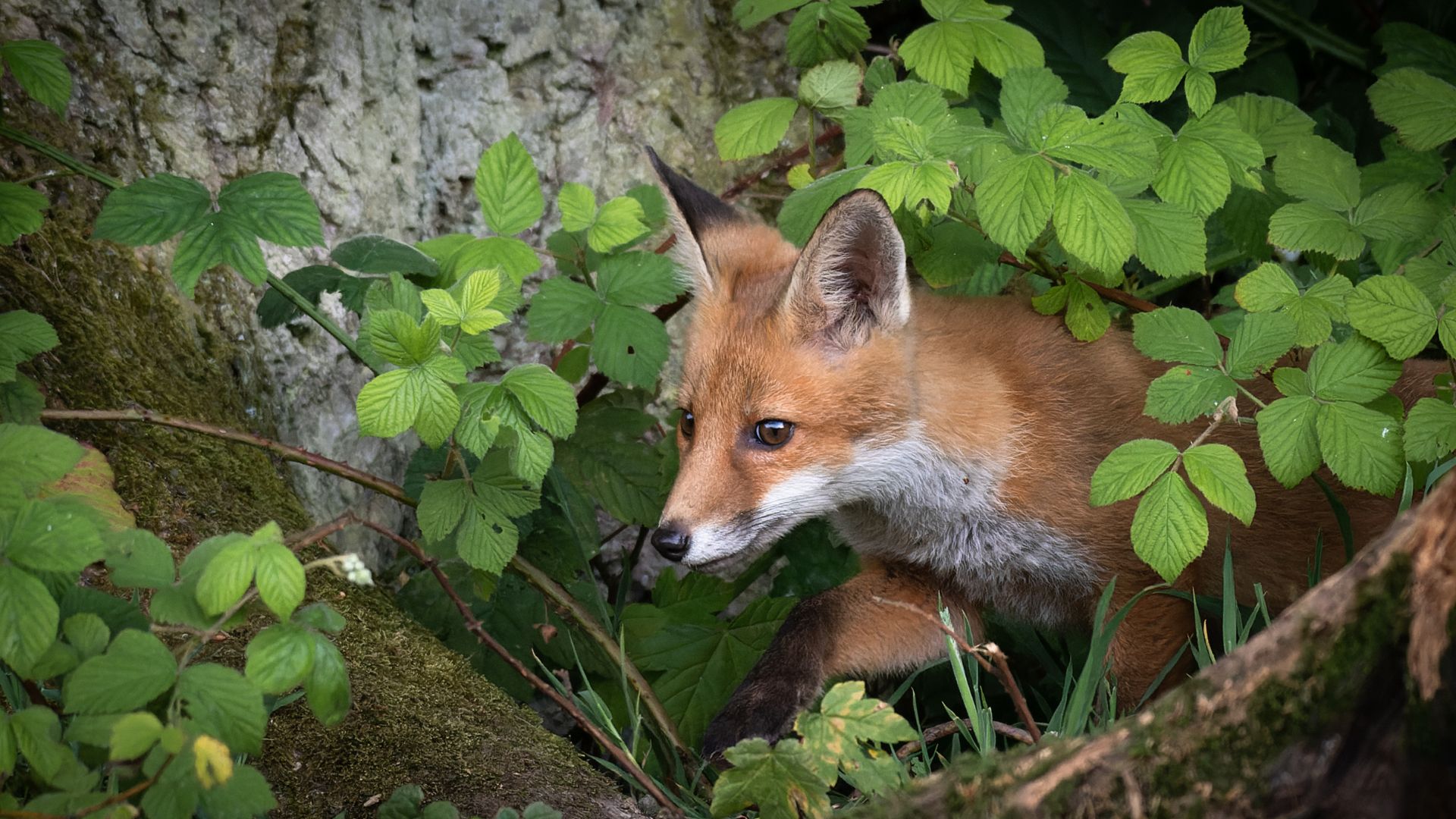
Although foxes are widely regarded as an animal you don't want living in your garden, the chances are you'll see one from time to time. If you're still getting around to sorting your garden out then you might have a visitor sooner than later.
- Avoid: Foods you should avoid putting out include all junk food items, dairy products and cooked bones. Foxes are lactose intolerant and cooked bones can easily splinter which poses a threat to their throat or digestive system.
- Safe to feed: "Foxes are omnivores but they thrive on protein, so you can offer meat such as chicken, turkey, or beef," suggests Andrew. Although he does warn: "Avoid seasoning or spices and cut the meat into manageable pieces. Liver, kidneys, or other organ meats can be a good occasional treat. Wet or dry dog food is a convenient and well-balanced food source for foxes, providing them with essential nutrients. They also tend to enjoy raw or cooked eggs."
FAQs
Is it okay to feed foxes in your garden?
The debate of whether you should feed foxes or avoid doing so to stop foxes from coming into your garden can be quite a controversial topic. James Ewens, commercial director of Green Feathers, highlights several problems foxes can cause.
"Feeding foxes regularly can also cause them to frequent your garden more often and causes some major disturbances, whether that’s digging through your plants to get to insects in the soil or making their unmistakable late night screeches until the early hours of the morning," he says.
Should you be happy to welcome the undeniably cute yet mischievous creatures into your garden there are a few things you can feed them.
James explains, "If you do choose to feed foxes, then tinned dog or cat food is your best option as they have a carnivorous diet, though they can also be fed various raw or cooked meats that you may have leftover as well.”

James is the Commercial Director of Green Feathers, bird box camera and garden wildlife specialists, and is a garden enthusiast. James is passionate about all things nature, garden, and wildlife, and when he’s not tending to his own outdoor space he’s usually checking on his bird and hedgehog cameras.
What scraps can I feed wild birds?
If you're the type of gardener who loves trying out sustainable garden ideas then you'll probably prioritise low waste and reusing whatever you can. And whilst putting food waste to good use is great for composting, leaving out your leftovers for the birds may not be so beneficial.
Sean says, "While it’s tempting to share scraps, some foods can actually harm birds. Bread, for example, has little nutritional value and can fill them up without providing the energy they need to stay healthy. Milk, along with chocolate is another big no-no – it can upset their stomachs and lead to dehydration, which is especially dangerous in winter."
Looking after the wildlife isn't the only job you can keep busy with this season. There are lots of bulbs that need planting now for an impressive spring bloom, from tulips to daffodils.

Emily joined woman&home as a staff writer after finishing her MA in Magazine Journalism from City University in 2023. After writing various health and news content, she now specialises in lifestyle, covering unique cleaning hacks, gardening how-tos, and everything to help your houseplants thrive.
